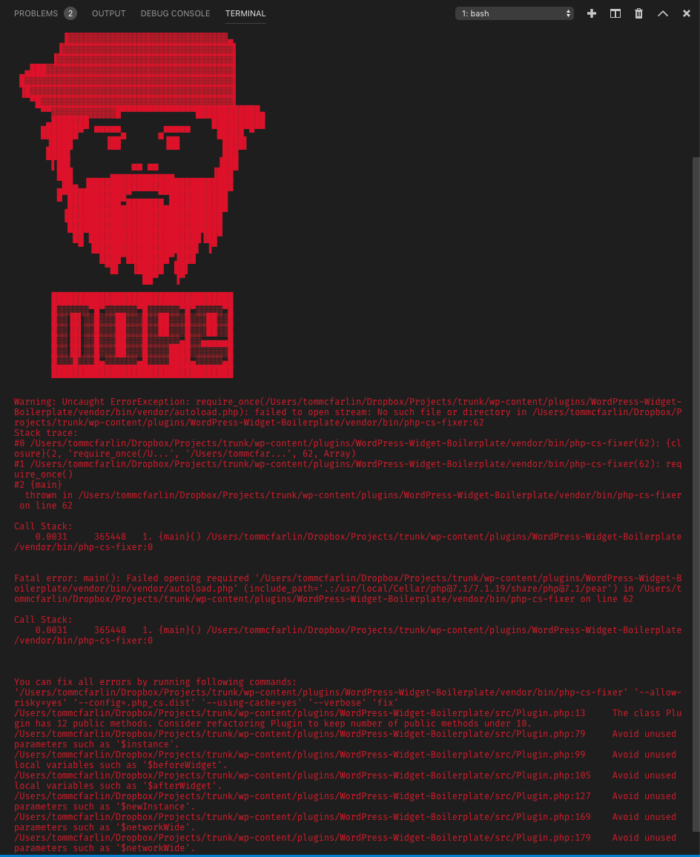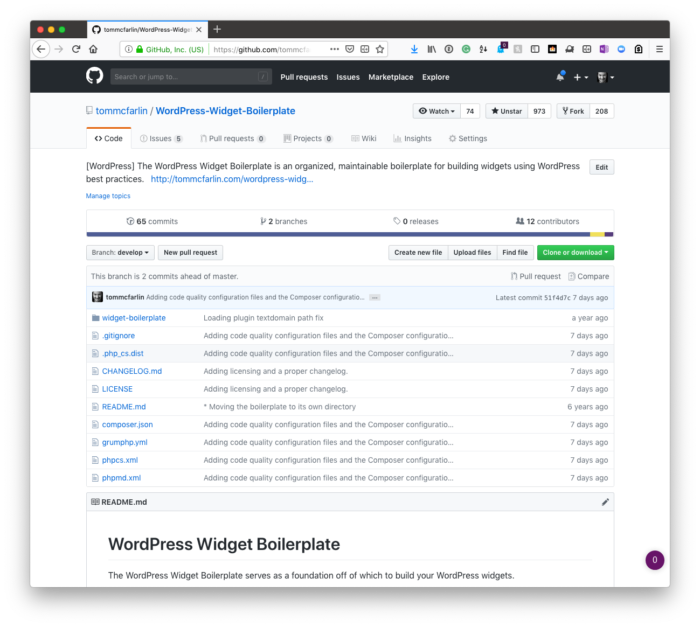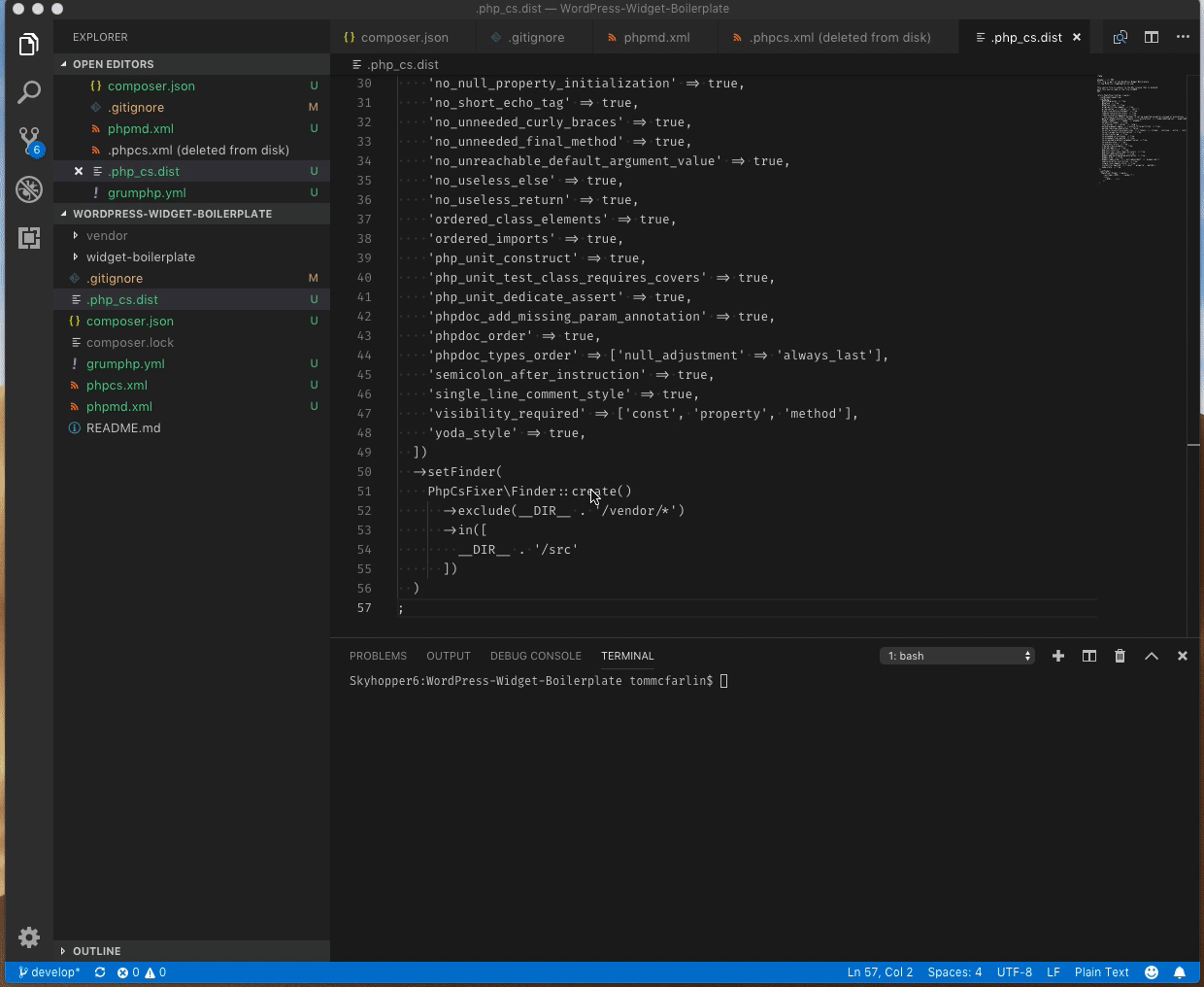We’ve implemented a significant amount of changes to the WordPress Widget Boilerplate. If you’ve not been following along, I recommend starting at the beginning of the series and catching up.
If, however, you’ve been following along and you’re also running some of the code quality tools that examine the state of the project, then you’re going to notice a handful of errors in the console.

Normally, this is the point where I recommend paying attention to what it shares and then fixing whatever it reports, but we’re not there yet.
For example, some of the errors that our tools are showing right now are based on the fact that we have unused variables. Of course, that’s the case, though, because we haven’t started building a widget.
But there are still a few concrete classes we need to implement.



